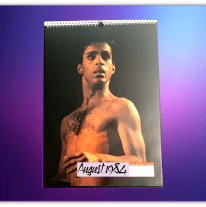One of the implied promises a band makes to its fans is consistency.
You pop in a favorite cassette or hit play on your favorite streaming service, and lean back.
After a few albums or singles, a pattern develops.

You know what you’re getting; you usually aren’t surprised. It’s a somewhat comforting experience, like when an old friend comes a-callin.’
But alternately, some bands decide to ditch their usual and safe route. They opt instead for an hairpin curve detour:
A serious left turn. At their own fork in the road.
Or, if you will:

“In the groove.”
A decision that they will they veer away from the sound that built their reputation, and pivot to something radically different.
Whether it be the forced input of a new and experimental producer, a record company executive decision, or just the whimsy of the band members themselves:
When a band radially changers it’s prior “signature sound,” it can be a musical whiplash so severe you’d swear you’ve tuned into a completely different artist.
Presenting: Four bands. Eight songs. And for those of you keeping count: just about as many different musical personas.
Chicago
Just When You Were Used To:
“Make Me Smile…”

They Took A Fork In The Groove With:

“If You Leave Me Now.”
Over their storied career, Chicago was technically one band, but functionally two.
On one side: the horn-heavy rockers of “Make Me Smile,” with all of the exciting bombast and shifting time signatures. It was like a pep rally choreographed by jazz majors.
On the other: the satin-soft balladry of “If You Leave Me Now.”

Afloat on strings, with Peter Cetera’s ooo-ooo-ooo-oooweooo vocal stylings. Which I am certain could be licensed as a dessert topping.
“Make Me Smile” appeared on Chicago II (1970), showcasing ambitious suite-style songwriting. “If You Leave Me Now” (1976) was their first number-one U.S. single and won a Grammy.
The Billboard Verdict?
- “Make Me Smile” – #9.
Crackling the Top 10 is a respectable achievement. Never reached the summit, but stayed playful.
- “If You Leave Me Now” – #1.
Peak serenity achieved.
The Band Members Verdict?

- “We always tried to stretch ourselves musically. One day it was horns, the next day it was strings. That’s just Chicago”
– Keyboardist Robert Lamm
- “A lot of people were really put off in some ways by our departure from more artistic approaches to the commercial … I think we lost something … we lost a lot of fans.”

- And I probably … became, like you say, basically a ballad drummer.”
– Drummer Danny Seraphine”
The Doobie Brothers
Just When You Were Used To:

“China Grove…”
They Took A Fork In The Groove With:
“Minute by Minute.”

Tom Johnston and the Doobies lit up rock and Top40 radio with their fourth consecutive hit single, “China Grove.”
Rocking down the highway, indeed. It’s got a commanding guitar riff, barroom grit, and, I swear, a faint smell of engine oil. “China Grove” was a memorable track from The Captain and Me in 1973.

But change was in the air, and Johnston’s growl gave way to Michael McDonald’s velvet fog, pivoting from bar band to brunch band in record time.
Any time I’ve ever heard “Minute by Minute,” I almost expect to find a post-it note on my stereo saying, “OK, I’ll be taking over now.”
“Minute by Minute” (1978) won a Grammy and cemented McDonald’s soft-rock credentials.
The Billboard Verdict?
- “China Grove” – #15.
Still plenty of muscle, or at least enough to get this high on the Hot 100.
- “Minute by Minute” – #14.
A soft rock velvet triumph.
The Band Members Verdict?

- “We weren’t trying to sound like ourselves all the time. It was just the music leading the way.”
– Michael McDonald
- “Oh yeah, hyper-aware of that [change in style]. And not in a good way. “
- “I felt like, Oh boy, you know? I’m gonna be the reason this whole thing turns to s**t!”
-Also Michael McDonald. If nothing else, he’s clearly an objective guy,

And now, time make you question whether you left reality, or if it’s just your Zune on total random shuffle. And maybe both:
The Beatles
Just When You Were Used To:

“Love Me Do…”
They Took A Fork In The Groove With:
“I Am the Walrus.”

I’m not exactly providing any earth-shattering revelations, here.
Even casual music aficionados will correctly note that every single Beatles album moves the needle in some form.

Somewhere between a moderate to a quantum leap in style from the prior LP.
When talking about the Fab Four, a proper study of their musical chameleonry would make for a very long and winding read. So for the sake of bandwidth, I’ll need to pick a single example. My musical wheel-o-moptops lands on these two:
- “Love Me Do” introduced Lennon and McCartney’s songwriting.
- “I Am the Walrus”, recorded during Magical Mystery Tour, is John Lennon’s surrealist experiment in orchestral chaos.
“Love Me Do” is sweet, harmonica-forward, and childlike in the lyrical department:
The perfect song to ask Gina for a dance, at the 1962 middle school homecoming soiree.

A scant five years later, Gina is apparently dropping acid as “I Am the Walrus” arrives. Complete with chanting children, surreal lyrics, a pirated radio broadcast snippet of Shakespeare’s King Lear, and string arrangements that feel like an argument.

The same four men, yes. But now in a parallel dimension, where semolina pilchards climb the Eifel Tower.
And really, now, let’s just stop here and agree that one million monkeys with one million typewriters are never coming up with that.
The Billboard Verdict?
- “Love Me Do” – #17.
How quaint. Such nice boys. A humble and polite debut.
- “I Am the Walrus” – #56.
“My HANDS… they’re… LAUGHING at me…”
The Band Members Verdict?
“We just let our imagination run wild… sometimes people thought we’d lost it, but we were really just exploring,”
– Paul McCartney
“The walrus was Paul.”
– John Lennon
And wrapping up our 4+4: a band trades CBGBs for the graffitied vibe of Yo! MTV Raps! :
Blondie
Just When You Were Used To:

“One Way Or Another”
They Took A Fork In The Groove With:
“Rapture”

Blondie could pivot like no other.
“One Way or Another” barrels forward with punk-infused determination—a chase, a snarl, a fearless declaration. Then comes “Rapture”, a lyrical adventure that flirts with disco, funk, and one of the earliest mainstream rap performances in the U.S., proving that Debbie Harry and friends could walk a musical tightrope. Without a net.
“One Way or Another” appeared on Parallel Lines (1978), a relentless punk-pop sprint. “Rapture” (1981), from Autoamerican, expanded their sound into dance floor experimentation and became a number-one U.S. hit.
The Billboard Verdict?
- “One Way or Another” – #24
Believable power-punk energy, minor chart chaos
- “Rapture” – #1
I just listened to it. It holds up. A genre-bending triumph.
The Band Members Verdict?

- “I don’t like to repeat myself. Every song is a new personality,”
– Debbie Harry
- “We were always changing and still discovering who we were.”
– Chris Stein

What links these mismatched pairs isn’t indecision, it’s possibility.
Each of these bands could easily have stuck to a formula… but where’s the fun in that? Instead, they tried on new clothes, crashed other genres’ parties, and occasionally fooled their own fans.
The result: creativity doesn’t stay in one lane, and neither do the best bands.

Sometimes they sound like themselves, sometimes like someone else entirely. Either way, it keeps us listening.
Maybe genre boundaries aren’t divided highways at all. Maybe they’re more like speed bumps.
And if you hit them at the just the right speed, the ride only gets more exciting.










I’m not familiar enough with the Chicago and Doobie Brothers back catalogues to take personal affront at their pivot to soft rock balladeering. Though its definitely not a change that appeals to me. Whereas The Beatles and Blondie sought out new and interesting directions that didn’t just stay in the slow lane.
A few more for consideration;
– Radiohead going from guitar led alternative to Kid A and Amnesiac with electronic experimenting to the fore.
– Bee Gees going disco to huge success.
– Brian Eno who after leaving Roxy Music carried on in a similar glam / art school vein before ditching typical song structure and inventing ambient.
– Scott Walker going from lush chamber pop to late career experimental weirdness like Tilt.
– Fleetwood Mac and Pink Floyd both of whom lost their initial driving forces to too much acid and went off in vastly different directions to even greater success.
– Stone Roses. One that wasn’t so successful. From era defining indie gods with their debut album to bloated blues rock excess on their career ending follow up.
Smart choices and good examples all around. I had to pare down the article to limit to four bands, but Radiohead and The Bee Gees, were obviously on the radar. As were many others.
In fact, when I was doing research for this, I came to realize that a significant sort of a shift in style is more common than i would have initially thought. Maybe they’re will be a sequel.
I really like this topic, and the examples chosen are all solid. I continue to be amazed at just how quickly and how much the Beatles evolved in their relatively brief time as a recording band. Not to mention that music as we know it would never be the same because of said evolution.
Doobies are a good example of what often happens when there is a personnel change and that person either is a lead vocalist or a key songwriter. I can get down with both pre and post McDonald stuff, but neither has been a significant part of my listening habits in years.
You are so right in that Chicago was always kind of split. “Colour My World” which reached #7, was not only on the same album as “Make Me Smile” but in the same song cycle and originally the B-side to it. They eventually were going to have to wholesale pivot to the softer stuff if they wanted to stay chart relevant, but yes, it was always there. I happen to like some of their ballads, such as the one mentioned, but when I choose to listen to Chicago, it’s “Make Me Smile” in the lead and other jams of that ilk that I most want to hear.
As you made clear with the quotes from the band, Blondie never really saw themselves as beholden to one style. Parallel Lines rocked hard on a lot of the songs, but then there it was, “Heart of Glass”, a disco song on the same album as “One Way or Another.” That is song that introduced most of us to the band, and pissed off many in the scene from which they came. “Rapture” is amazing and a culmination of their chameleon-like spirit.
If you do another one of these, JJ’s suggestions are all solid, and I would like to also mention a certain band helmed by two sisters whose 80s output would radically differ from their 70s sound, and both were very successful.
I like bands that evolve, and you could do an entire research paper on all the artists that briefly went Disco. That wasn’t evolution, it was trend following. I’m glad those short forays didn’t last, but real artistic exploration and growth are beautiful things. The Beatles and Blondie are perfect examples.
Great job, mt, I hope you do a Part 2.
I understand why fans may be disappointed when bands veer off in a different direction. You liked their 2nd through 4th albums, and then they sold out adding the accordion player and they haven’t been the same since.
And yet, artists don’t really owe us anything. Madonna and David Bowie are praised for how different their styles were at different times.
I definitely like 60s/70s Chicago better than 80s Chicago. But I am happy with either iteration of the Doobies. I definitely prefer the middle and final thirds of the Beatles’ output to their beginning material. Blondie? They’re just weird all around. But “Rapture” is one of my all time favorite songs of the 80s.
Chicago had a hell of a ride musically from the 1960s through 1980s. They were originally considered freeform jazz-rock-pop, but then Columbia started editing down their songs to hit singles, much to the band’s general displeasure. By the time If You Leave Me Now hit number one in 1976, they had held the distinction of being the band with the most top 10 hits without a number 1 until that point. From thereon, the musical direction got muddier as the approach became “Let’s find anything that sounds like a hit,” culminating in their worst number 1 hit “Look Away” in 1988. The current touring group seems to favor the 1960s/70s incarnation much more than the 80s one, to the point where “Look Away” isn’t included in their setlist (thank God!).
This is a fun one…
I recently did a deep-dive on The First Edition. Mind blown.
Ariana Grande from old-school r&b to modern pop, and Becky G from hip-hop inflected pop in English to Spanish reggaeton, for a couple of examples from this century.
To my ears, “Jocko Homo” and “Whip It” doesn’t sound like the work of the same artist. To this day, I prefer synthpop Devo to punk Devo, because Freedom of Choice was my starter album.
When I first heard “If You Leave Me Now”, I thought it was The Beach Boys. I wasn’t familiar with early Chicago. I knew Brian Wilson because of the YMCA Summer Fun program. (Songs we were forced to learn: “Fantasy” by Earth Wind and Fire, “Moonshadow” by Cat Stevens”, and “Makin’ It” by David Naughton.) We didn’t have to sing “Surfer Girl”, but one of the counselors was always playing it.
“I am the man who will fight for your honor…after all, what else is living for?”
Peter Cetera rules.